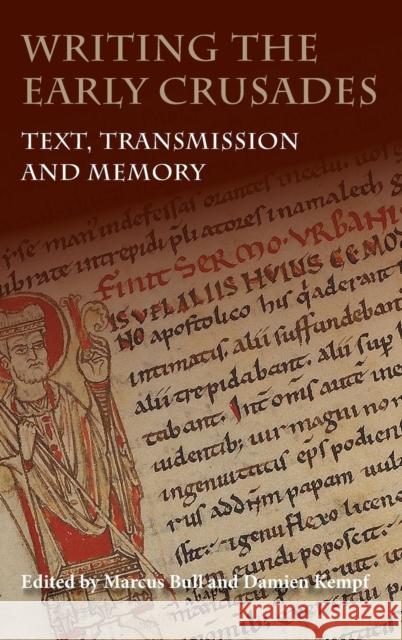Writing the Early Crusades: Text, Transmission and Memory » książka
Writing the Early Crusades: Text, Transmission and Memory
ISBN-13: 9781843839200 / Angielski / Twarda / 2014 / 184 str.
Writing the Early Crusades: Text, Transmission and Memory
ISBN-13: 9781843839200 / Angielski / Twarda / 2014 / 184 str.
(netto: 301,34 VAT: 5%)
Najniższa cena z 30 dni: 314,46
ok. 22 dni roboczych.
Darmowa dostawa!
The First Crusade (1095-1101) was the stimulus for a substantial boom in Western historical writing in the first decades of the twelfth century, beginning with the so-called "eyewitness" accounts of the crusade and extending to numerous second-hand treatments in prose and verse. From the time when many of these accounts were first assembled in printed form by Jacques Bongars in the early seventeenth century, and even more so since their collective appearance in the great nineteenth-century compendium of crusade texts, the Recueil des historiens des croisades, narrative histories have come to be regarded as the single most important resource for the academic study of the early crusade movement. But our understanding of these texts is still far from satisfactory. This ground-breaking volume draws together the work of an international team of scholars. It tackles the disjuncture between the study of the crusades and the study of medieval history-writing, setting the agenda for future research into historical narratives about or inspired by crusading. The basic premise that informs all the papers is that narrative accounts of crusades and analogous texts should not be primarily understood as repositories of data that contribute to a reconstruction of events, but as cultural artefacts that can be interrogated from a wide range of theoretical, methodological and thematic perspectives. Marcus Bull is Andrew W Mellon Distinguished Professor of Medieval and Early Modern Studies at the University of North Carolina at Chapel Hill; Damien Kempf is Senior Lecturer in Medieval History at the University of Liverpool. Contributors: Laura Ashe, Steven Biddlecombe, Marcus Bull, Peter Frankopan, Damian Kempf, James Naus, Lean Ni Chleirigh, Nicholas Paul, William J. Purkis, Luigi Russo, Jay Rubenstein, Carol Sweetenham,











